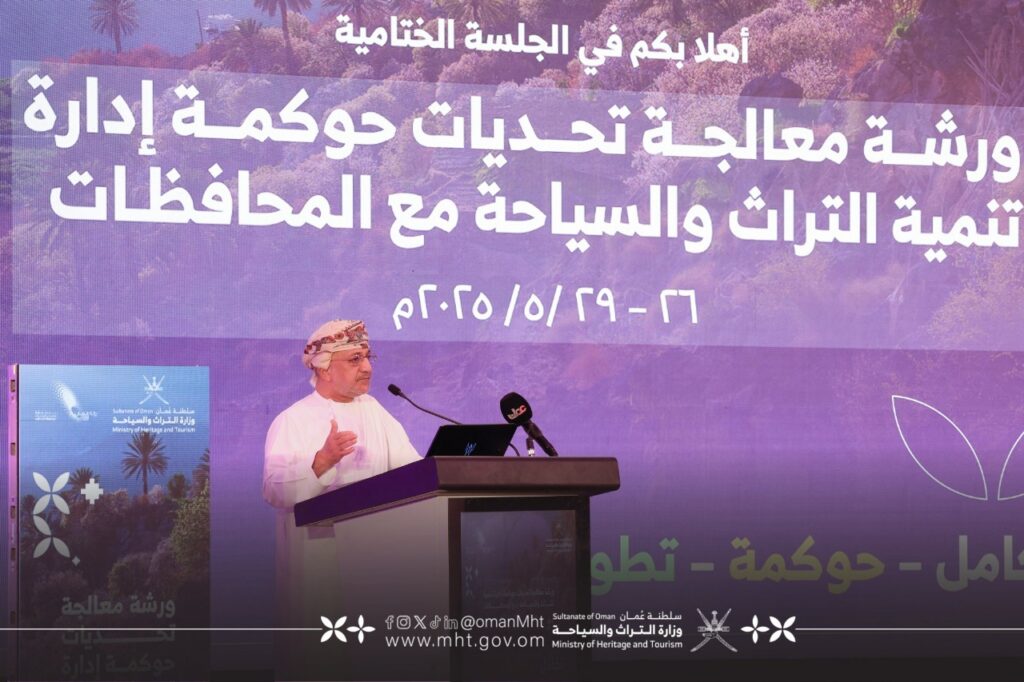Muscat: Oman is set to adopt an integrated governance system between ministries and governorates to manage the development of the heritage and tourism sectors, with implementation targeted by the end of 2025.
The announcement was made during the closing session of a four-day national workshop titled “Addressing the Challenges of Governance of Heritage and Tourism Development Management with Governorates,” held from May 26 to 29. The event was organised by the Ministry of Heritage and Tourism in collaboration with the Oman Vision 2040 Implementation Follow-up Unit.
A key recommendation from the workshop was the development of a unified governance framework to promote institutional integration. This includes a clear division of roles and responsibilities, coordinated tourism development plans for both current and upcoming projects, agreed allocation of heritage and tourism lands, and strengthened partnerships with the private sector and civil society.
Participants explored practical strategies to overcome governance challenges, focusing on ambitious targets outlined in Oman Vision 2040, such as:
- Raising tourism’s contribution to the GDP to 5.3%
- Attracting RO 12 billion in heritage and tourism investments
- Improving Oman’s ranking to 40th place on the global Travel and Tourism Index
- Achieving 80% satisfaction rate among local and international tourists
The closing session was attended by high-level dignitaries, including Their Highnesses, Excellencies, and heads of key government entities, underscoring the national importance of effective governance in tourism and heritage development.
The workshop also emphasized enhanced coordination between the Ministry of Heritage and Tourism and the governorates, including the development of robust governance mechanisms, infrastructure planning, comprehensive service solutions, and promotion of innovation, sustainability, and local value creation.
The sessions featured presentations, data analysis, and group discussions involving representatives from relevant ministries, governorates, and government agencies. These interactions produced a set of actionable initiatives designed to address governance challenges and accelerate progress in the heritage and tourism sectors.









